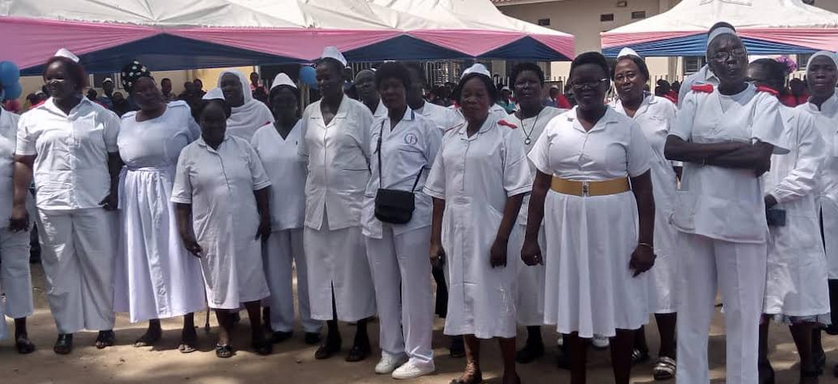As South Sudan jointly celebrated the International Day of the Midwife and International Nurses Day last Friday, the health workers appealed for better working conditions and government support to end maternal and infant mortality rates in the country.
The days are commemorated on 5 and 12 May every year respectively.
Speaking during the event, Janet Michael, the director general in charge of nurses and midwives at the national health ministry, urged the government to support them with vital equipment.
“If these nurses and midwives are not supported, they will not be able to deliver,” she said. “Today, we are saying that at our facilities we do not have the tools for work, necessary infrastructure, water, light, and other vital equipment for our work.”
According to Michael, the combined efforts of nurses and midwives have reduced the maternal and infant mortality rate in South Sudan.
“The nurses and midwives are front-line workers. Without tools, they will not be able to fight. I want to say with that the midwives, our maternity mortality rate has reduced,” she said. “We need to have total reduction and that is if the facilities are working.”
The health official also raised concerns about the medical referral system in the country, saying ambulances are used to carry dead bodies instead of responding to emergencies.
“What we have seen is that instead of ambulances taking women to health centers, they are used to carry dead bodies,” Michael revealed.
For his part, Fabian Ndenzako, the World Health Organization (WHO) representative in South Sudan, pointed out that achieving universal health coverage in the country is dependent on the trained and adequate number of nurses and midwives who are well supported and compensated.
“Universal health in South Sudan will only be achieved by having well train and learned nurses and midwives,” he said.
According to WHO’s 2018 survey, the majority of health workers in South Sudan are nurses but with the lowest ratio in the region.




